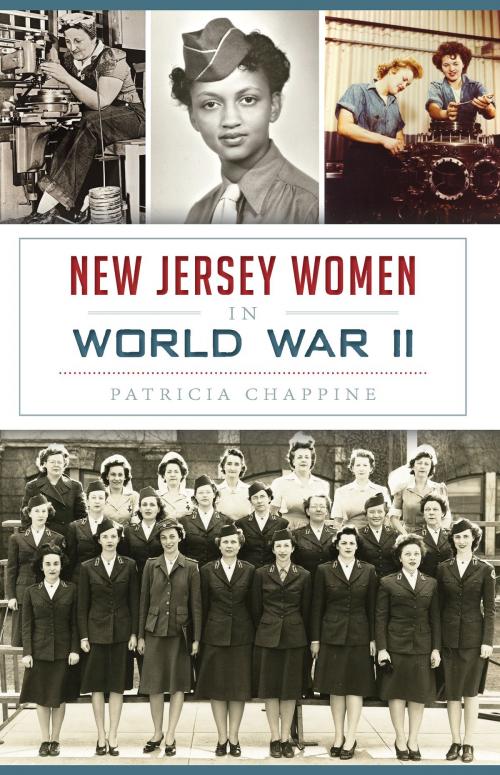New Jersey Women in World War II
Nonfiction, History, Military, United States, Social & Cultural Studies, Social Science, Gender Studies, Women&, Americas| Author: | Patricia Chappine | ISBN: | 9781625853967 |
| Publisher: | The History Press | Publication: | June 8, 2015 |
| Imprint: | The History Press | Language: | English |
| Author: | Patricia Chappine |
| ISBN: | 9781625853967 |
| Publisher: | The History Press |
| Publication: | June 8, 2015 |
| Imprint: | The History Press |
| Language: | English |
Real-life Rosie the Riveters worked the lines in New Jersey’s factories, such as those of General Motors’ Eastern Aircraft Division, while women on the vulnerable coast enforced blackout orders. Others sold war bonds, planted victory gardens and conserved materials for the war effort. Thousands more served as nurses and in branches of the armed forces like the Women’s Army Corps and the U.S. Navy’s Women Accepted for Volunteer Emergency Service. African American women fought a double war—one against the nation’s enemies and another against discrimination. Historian Patricia Chappine explores the pivotal roles that New Jersey women played in World War II.
Real-life Rosie the Riveters worked the lines in New Jersey’s factories, such as those of General Motors’ Eastern Aircraft Division, while women on the vulnerable coast enforced blackout orders. Others sold war bonds, planted victory gardens and conserved materials for the war effort. Thousands more served as nurses and in branches of the armed forces like the Women’s Army Corps and the U.S. Navy’s Women Accepted for Volunteer Emergency Service. African American women fought a double war—one against the nation’s enemies and another against discrimination. Historian Patricia Chappine explores the pivotal roles that New Jersey women played in World War II.















